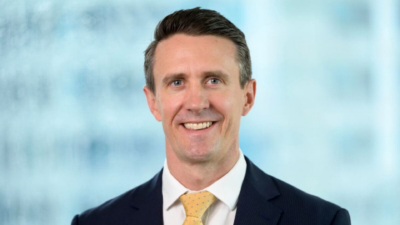Super needs a ‘major re-engineering’ for retirement to succeed
It’s been more than two years since the retirement income covenant came into effect, but funds are still lagging on three core areas, and something drastic needs to be done to make the superannuation system fit for purpose.
That could mean a retirement licencing system, which – as the name suggests – would require funds to have the capability to actually deliver a retirement income strategy (RIS) to a “reasonable standard” before being allowed to offer retirement solutions to their members.
“We are really concerned that the retirement stage of super isn’t going to get there,” said David Bell, executive director of the Conexus Institute. “A licensing regime would address that.”
The three main areas that funds are lagging on, according to APRA and ASIC’s retirement pulse check in July, are understanding members’ needs; designing fit-for-purpose assistance; and overseeing strategy implementation. That lag has real consequences, too; Bell estimates that since the release of his and Geoff Warren’s paper on retirement licencing back in July, nearly 80,000 Australians have retired.
“It’s quite realistic that half the industry won’t be on top of three pretty fundamental areas, two years after the retirement income covenant has come into existence.”
And while it’s scripture in market-based systems that winners and losers will emerge naturally – that members will simply flock to whoever can do the best job for their balance – Bell thinks that market forces don’t really work in the retirement phase of super and that natural selection won’t thin the ranks of funds that aren’t doing enough for their members.
“Market forces are where informed consumers shop around and choose a retirement provider and the industry responds to that by developing better and more effective products and services and become winners,” Bell says. “If a fund told the average retiree that they were really good at retirement, most of the members of that fund would nod their head and say ‘sure’.
“Understanding the nuances and the difficulties is really challenging for retirees; most of them trust their fund, but all the funds are at different states of where they’re at in terms of developing their strategy. We think you need some sort of assessment of whether they meet the criteria or not, and if you don’t you would be required to triage your members across to a fund that has a retirement licence. You could choose to be an accumulation-only fund.”
Bell concedes that’s not an ideal option – that funds that opt out would find it hard to be sustainable when they’re losing members at peak balance – but thinks that accumulation-only funds could still create innovative products.
As examples of funds that are already doing well on retirement, Bell points to Equip Super, which is “doing everything it can” within the general advice space by packaging retirement calculators and information with a concierge service; Commonwealth Superannuation Corporation, which has built member “personas” to guide them into retirement; Aware Super’s retirement confidence score; and Colonial First State’s partnership with advice providers to help their members access affordable solutions.
But do funds have everything they need from a regulatory and legal standpoint to build out their retirement offering? Not quite, and licencing can’t address two major issues.
“The first is the whole advice piece – creating a broader space for funds to provide advice and guidance to members around retirement; the clearest step to that is delivering better financial outcomes (DBFO) phase two. Then there’s the retirement frictions – it’s difficult to open an account-based pension, you can’t contribute to it, you can’t easily consolidate account-based pensions.”
“But there are examples of funds navigating through that space and doing good things within existing frameworks… There are ways through, but policy support would enhance that further. And there’s good work being done on retirement frictions.”
Bell and Warren did get feedback that by the time a licencing regime came into effect the industry would be a long way along the pathway to retirement – but Bell thinks that’s not quite true, and that funds will still be in different spots years from now.
“We just don’t have the confidence that everybody is going to get to the same spot and it’s really baseline standards that we’re worried about,” Bell says. “We just viewed everything as being too principles-based and the pace at which industry is moving, everybody needs a little more clarity as to what’s required but there also needs to be a lever that if you’re not getting there fast enough why should members who don’t really switch funds at that point in retirement be with you? If you have that capture then you should be directing them to another fund that’s licenced.”
“It would be a major re-engineering of the system, but that’s what the retirement phase of super is anyway.”











